Every Catholic school is unique, BUT… there are some very core commonalities between them. Find out how those commonalities motivate us to help schools across the country achieve their goals.
Schools
Meitler Minute
National research by two of our partner organizations has revealed four common factors for why parents don't enroll their kids in Catholic schools. Learn what they are and how we are helping principals overcome the challenge.
Enrollment and Value
I’m spending a lot of time with Catholic schools in the Midwest and Northeast where enrollment trends are a concern and a challenge. We often hear and see through research that populations are changing and shifting, more people are moving to the sunbelt and warmer climates, and many Catholic families and families in general are having fewer children. Too often we hear that demographics are impacting enrollment as there are simply fewer children out there.
A recent article by Nathan D. Grawe entitled “The Enrollment Crash Goes Deeper Than Demographics,” provides an interesting take on why enrollments at colleges and universities are declining overall. And much of what the author puts forward as a higher education experience fits our view of Catholic schools and what has been taking place in our overall declining enrollments over the past decade or more.
When we lead an enrollment management study or strategic growth planning process, one of the first questions we ask the administrators, faculty and board members is: “What distinguishes your school from all others? What do you offer that makes it unique in your market area?” We often hear a common response – “We’re like a family,” or “We have an affordable tuition,” “We have the most dedicated faculty and staff,” “We are very Catholic,” among other similar descriptions that pretty much many of our schools can voice. Too often we hear these responses at schools where enrollment is becoming or truly is a major challenge, which can be troubling.
In his article, Nathan Grawe says a key to enrollment decline is that school leaders, administrators, boards, etc. are “failing to address changes in the market.” Many times, these school leaders look to working harder or working smarter and hope “that good things will happen.” What they do not realize is that they are not focusing on offering “value” – unique and innovative solutions for the communities they are serving. Having, in current education lingo, “cutting edge, high quality 21st century programs” that generate interest in a school can make parents and families aware of the distinction and value our Catholic schools. We often refer to this as building a strong value proposition.
People shop differently for their children’s education today and all of us in school leadership roles need to keep our finger on the pulse of what our market wants and what they “will buy.”
Meitler Minute
This week we pause to celebrate the gift of a Catholic education. This week long celebration provides schools across the nation a set time to honor our parish communities, school boards, students, faculty, staff, volunteers, and administrators. It is a time in which we showcase a Catholic education. The team at Meitler is grateful for our work with Catholic schools.
“Catholic Schools: Learn. Serve. Lead. Succeed.”
Planning Missteps
I recently read an article in a digital publication called “Ladders, Inc.,” an information/news source focusing on a wide range of work, career and management-related issues. What piqued my interest is that it shared missteps to avoid in developing a comprehensive growth plan, obviously a topic that warrants a read by a planning consultant.
There were five key missteps in planning that in my experience with strategic planning with Catholic schools over the years capture what can quickly derail or unravel even the “best laid schemes of mice and men” as Robert Burns once shared. For consideration:
- Not including the right people in the planning process. Engagement is the key to success so those most impacted by a plan should have an opportunity to share their insights and concerns and ultimately, take ownership for their future. For us in our Catholic world, subsidiarity is incredibly important so those in our school communities believe they are heard and taken seriously. In our work, this includes faculty and staff, parents, students, pastors, alumni, community leaders, supporters and friends.
- Failing to consider the people and their culture early in the process. We often share what we refer to as our unofficial tagline – “if you’ve seen one Catholic school, you’ve seen….one Catholic school.” Understanding that each school community has its own history, traditions, culture, and interpersonal dynamics (and yes, even politics) is an essential first step in any planning process. Tailoring a planning process to that distinctive culture and life of a school warrants adaptability over a template-based planning process.
- Making bold statements and eye-catching goals without essential data. One of the hallmarks of a good plan is the data that provides its foundation and from which wise decisions can be made. Understanding community and Catholic demographics, enrollment and financial trends and projections, sources of students and enrollment management data are all critical in assessing the vitality and sustainability of our schools. It’s one thing to be bold, it’s another to be well-informed.
- Opting for big-picture, ambiguous goals and objectives rather than more tactical ones. We were once challenged that some planning goals we presented were “not aspirational enough.” In our experience, aspiration is important, but most school leaders are looking to address challenges they are facing and sometimes being tactical and more focused is the right call.
- Not allowing enough time to have a plan develop. There are times when we are asked to lead a planning process where school administration and board members will develop the plan during a weekend retreat or in a month of meetings. Building a comprehensive three- to five-year plan takes time – time to gather and analyze the necessary data (#3 above), engage the right people (#1 above), and better understand the culture and hopes of the school community (#2 above). As we tell folks – we can do it fast, or we can do it right.
Effective planning is an art and a skill that takes time, patience and a willingness to envision how our schools can be more focused and innovative in their academic efforts and allows schools to achieve their mission – to bring the children closer to God in holiness, wisdom and understanding.

